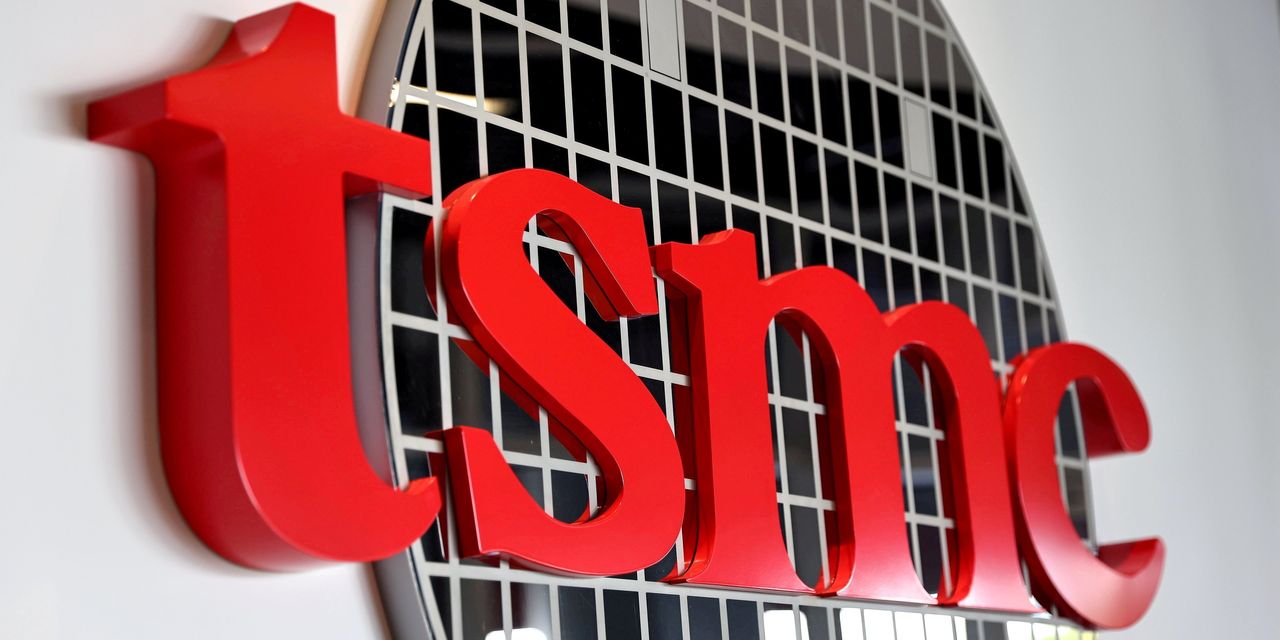Fresh off a quarter of record revenues,
Taiwan Semiconductor Manufacturing Co.
TSM 0.40%
—the world’s largest custom chip maker—expects the semiconductor shortage that has plagued car makers this year to ease. Strong demand for chips should nonetheless keep business humming. The company’s biggest problem might be balancing the demands of so many interested parties: many of the world’s largest companies and most powerful governments.
The company says the automotive semiconductor shortage will be greatly reduced starting this quarter as it will increase output of microcontrollers for cars this year by nearly 60% from last year, or around a 30% rise from pre-pandemic levels.
TSMC, however, believes its capacity will remain tight as long-term increases in chip demand remain intact: 5G and other computing applications require more powerful and energy-efficient processors. TSMC expects sales this year to grow more than 20%.
While automotive chip shortages have been in the headlines, TSMC generates most of its revenue from smartphones or high performance computing applications like central processing units and graphic chips. Automotive only accounted for 4% of total revenue last quarter.
One looming worry is margins. The company’s gross margin last quarter was 50%, a drop from 52.4% in the previous quarter. Partly that was due to a strong Taiwanese dollar. But ramping up production of its most advanced 5-nanometer nodes also hit margins, which were weighed down by the depreciation costs of building new plants.
Nearly a fifth of TSMC’s sales came from 5-nanometer last quarter, up from nothing a year earlier. Many customers might have also over ordered to secure guaranteed supply now: That could weigh on demand growth in the future. Management, however, remains sanguine.
Geopolitics might be an even trickier problem. As semiconductors become a central issue in the China-U.S. rivalry, many governments want to lure TSMC to build manufacturing plants. Construction of TSMC’s Arizona plant has already begun but won’t begin volume production until 2024. Even then, the size of the plant is tiny. TSMC says it won’t rule out a second phase.
Chairman
Mark Liu
has laid out the dilemma TSMC faces: “While overseas fabs are not initially able to match the cost of our manufacturing operations in Taiwan, we will work with governments to minimize the cost gap to ensure we start with a level playing field. We are working closely with our customers to firm up our wafer pricing to reflect the cost increases.”
In short, it might not make sense economically for TSMC to build plants overseas, but governments might help by providing subsidies—or customers will have to bear the costs.
TSMC has problems that most companies would kill for: Everyone wants its products, and investment. With so much of the global economy—and global geopolitics—suddenly rotating around it, however, the consequences of any slip-up could be severe.
Chip Manufacturing
Read more articles about this critical industry, selected by WSJ editors
Write to Jacky Wong at jacky.wong@wsj.com
Copyright ©2021 Dow Jones & Company, Inc. All Rights Reserved. 87990cbe856818d5eddac44c7b1cdeb8













































